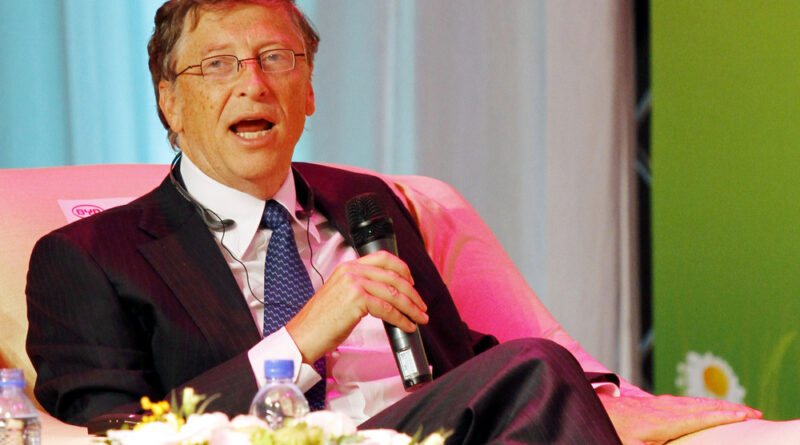Bill Gates Predicts a Job Apocalypse—But These Three Careers Will Survive the AI Revolution
In the midst of the relentless surge of artificial intelligence into every crevice of the tech world, a sobering prediction from Microsoft co-founder Bill Gates has caught the attention of both tech enthusiasts and workers alike. In a series of recent interviews, Gates outlined a future where AI not only transforms the workplace but renders most human jobs obsolete. Yet, amid the techno-apocalypse, he identified three fields where human expertise remains irreplaceable.
The AI Invasion
AI is no longer a buzzword reserved for marketing gimmicks—it’s a force that’s reshaping industries, streamlining processes, and yes, even threatening to eliminate jobs. Gates’s stark vision of the future was laid out during an appearance on The Tonight Show with Jimmy Fallon, where he boldly declared that AI would eventually solve problems related to manufacturing, logistics, and agriculture. “There will be some things we reserve for ourselves. But in terms of making things and moving things and growing food, over time those will be basically solved problems,” Gates stated, painting a picture of a world where machines dominate routine tasks.
This vision resonates with the anxieties of workers across sectors. As AI continues to learn and automate, many fear a future where human effort is no longer the driving force behind the economy. However, Gates suggests that the future may not be as grim as it appears—if you’re working in one of the three fields he singled out.
The Three Fields That Will Survive
1. Coding and Software Development
Despite recent claims by some tech CEOs that coding could soon become a task handled entirely by AI, Gates believes that human coders are indispensable. He argued that understanding the underlying layers of AI and ensuring it behaves as expected requires a human touch—akin to knowing how to multiply, even when computers can do the math in seconds. According to Gates, coders are essential for troubleshooting, refining algorithms, and preventing AI systems from going “crazy stupid.” In this view, the nuanced judgment and creativity of human programmers will remain critical in driving and maintaining technological innovation.
2. Biological Research and Discovery
In the realm of science, AI can diagnose diseases and analyze genetic data with remarkable efficiency. However, Gates warns that the role of biologists in driving breakthrough discoveries and advancing our understanding of life is irreplaceable. While AI may serve as a powerful tool in the laboratory, the creativity and intuition of human biologists are necessary to ask the right questions, interpret complex data, and push the boundaries of what we know about biology. This perspective underscores the importance of human insight in scientific inquiry, even in an era dominated by machine learning.
3. Energy Expertise
Perhaps most surprising is Gates’s assertion that energy experts will be safe from an AI takeover. The energy sector, he argues, is simply too complex to be fully automated. The intricate challenges of managing energy grids, innovating sustainable power solutions, and navigating global energy policies demand a level of expertise that AI is unlikely to replicate in the near future. As nations grapple with the transition to renewable energy and the complexities of energy security, human expertise will be essential to guide these critical efforts.
A New Paradigm for Work
Gates’s comments spark a broader conversation about the future of work. During his appearance on The Tonight Show, he mused, “Should we, you know, just work like 2 or 3 days a week?” The implication is profound: if AI can handle most tasks, human labor may be significantly reduced, opening up opportunities for leisure, creativity, and new forms of employment. While the prospect of drastically shortened workweeks is enticing, the transition will undoubtedly come with challenges as society grapples with the shifting balance between human and machine labor.
The Road Ahead
As AI continues to permeate every aspect of our lives, the resilience of certain careers offers a glimmer of hope for workers anxious about their futures. Gates’s predictions serve as both a warning and a call to action: for those in coding, biology, and energy, the future remains bright, but for many others, adaptation and continuous learning will be critical.
In this rapidly evolving landscape, one thing is clear—while AI may dictate the pace of change, the human spirit, with its capacity for creativity, intuition, and problem-solving, is still very much needed. The challenge for policymakers, educators, and industry leaders is to harness the transformative power of AI while ensuring that workers are equipped to thrive in a new era where human ingenuity remains at the heart of innovation.
As the debate over AI’s role in the workplace intensifies, Gates’s predictions remind us that, even in a future dominated by algorithms, there will always be a place for the irreplaceable value of human expertise.
Photo Credit: DepositPhotos.com

